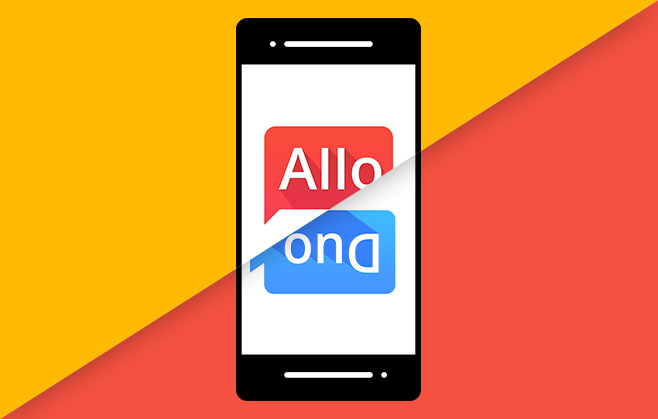
Allo and Duo: The most revolutionary communications apps yet?
At Google’s recent I/O Developers’ Conference, the company revealed two new messaging apps, amongst other exciting announcements. Named Allo and Duo, they will join Google’s numerous other products. Naturally we were keen to take a look and ask- how will they stand out in comparison to competitors?
With Allo and Duo, Google has added two more messaging apps to its existing line up, which already includes Messenger and Hangouts. As we touched on in our blog post from last week, Allo is Google’s answer to an app such as WhatsApp, enabling mobile messaging for both iOS and Android users. There’s a difference though- Allo cleverly relies on Artificial Intelligence from Google Assistant, the company’s Cloud- powered intelligent assistant. This will be the basis of the app, offering users word or phrase suggestions during conversations, based on his or her’s usual written style and history. And to our minds, the top selling point is Google’s statement that the more one uses the app, the more true to you and precise the algorithm becomes.
Duo on the other hand, is more akin to something like FaceTime, enabling one to one video calls. Google also promises fast connecting times, due to Web Real time Communication. And the coolest feature about this app is the fact that it also reveals the caller on video just before the recipient picks up, so he or she can see who’s on the end of the line.
But why has Google felt the need to launch Allo and Duo, given the company’s existing communications apps? After all, Google already has Hangouts, a relatively established app for over 3 years, which includes features such as video calling and text message support. Then there’s Messenger, a messaging app specifically for Android, which enables users to chat one to one of in groups, make voice calls, and share files. And that’s not forgetting that the company also had products in the past such as Google Talk, an instant messaging app integrated into Gmail, which was subsequently dropped in 2015, and currently also has Spaces, a social group sharing app for Android, iOS, desktop and mobile Web.
It’s also interesting that Google has no plans to phase out or get rid of Hangouts and Messenger once Allo and Duo launch later this year. Perhaps together the company envisages its apps to be a communication powerhouse to rival the likes of Facebook Messenger and WhatsApp? While all four of these apps offer a slightly confusing mix of features, the clear benefit of Allo in particular is its nod to AI, something which existing messaging apps don’t have. It is only Facebook Messenger which in the future will be turning to this technology, with the launch of chat bots who will interact with users, from recommending products, to sharing news updates. For now though, Allo looks as though it is one of the earliest adopters of AI, presenting a unique advantage in the messaging market place.
Do you think Allo and Duo will gain popularity? Can you see yourself using these apps in place of or in addition to your current communications apps? We’d love to hear your thoughts, so please tweet to us @PracticeDigital and share your comments via our Facebook page.




